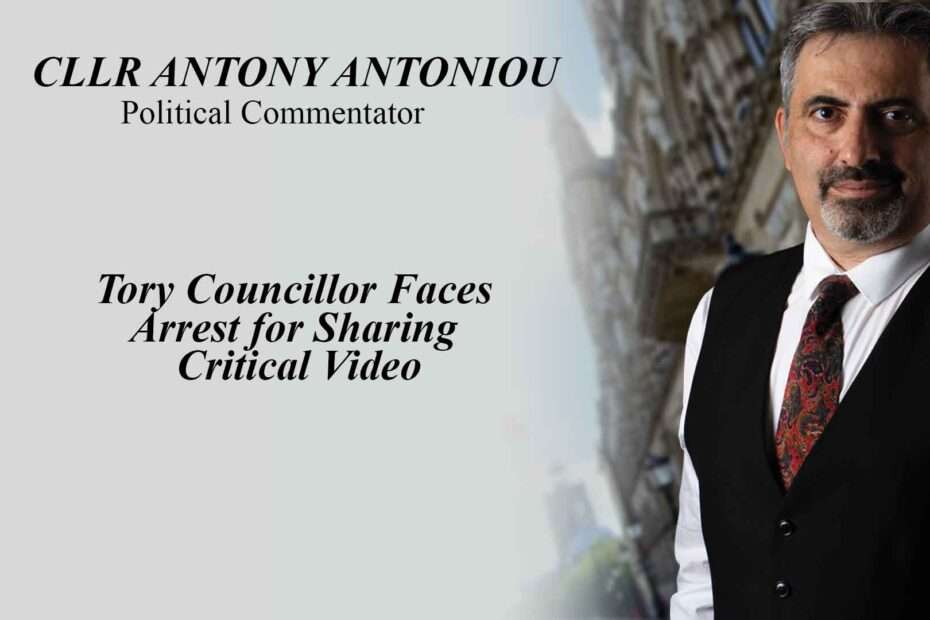Tory Councillor Faces Arrest for Sharing Critical Video
A Deep Dive into Free Speech and Political Expression
In a startling turn of events, a Conservative councillor finds himself at the center of a heated debate over free speech, political expression, and the limits of sharing content on social media platforms. Anthony Stevens, a 50-year-old member of Wellingborough Town Council from Northamptonshire, was recently arrested for what is being classified as an alleged hate crime after he retweeted a video that criticized the police’s handling of the arrest of a Christian street preacher.
The video in question showcased the arrest of Christian preacher Oluwole Ilisanmi, which took place in Southgate, London, back in 2019. This arrest stirred controversy as Mr. Ilisanmi’s Bible was seized by a police officer on accusations of Islamophobia. The preacher was later awarded compensation for wrongful arrest, shedding light on potential religious discrimination within law enforcement.
Councillor Stevens shared this video, among others, to his personal Twitter account in May. However, his decision to retweet the video led to unforeseen consequences. He was arrested at his home and taken to a police station for questioning. The arrest has ignited a fierce debate about the boundaries of free speech, the role of social media in political discourse, and the potential implications of sharing content that challenges the actions of law enforcement.
Stevens’ case also intersects with another incident involving his support for fellow Northamptonshire councillor, King Lawal. Lawal, a prominent figure and the only black councillor in the region, faced backlash for expressing his Christian beliefs in relation to LGBT issues. This incident resulted in his suspension from the local Conservative group. Stevens, a firm advocate of free speech, threw his weight behind Lawal by retweeting a petition to reinstate him.
During his interrogation, Stevens was questioned about his support for Lawal and the reasons behind it. He expressed his commitment to the principle of free speech, emphasizing that even when he doesn’t agree with someone’s views, he believes in their right to express them without fear of reprisal.
Another significant tweet that came under scrutiny was one in which Stevens shared a video of a man burning a copy of the Quran. He justified this by asserting that he views such actions as part of an individual’s right to free speech within a democratic society.
Stevens’ arrest, reportedly triggered by a complaint from a local Labour Party member, has stirred an outcry from proponents of free speech and civil liberties. He was arrested under suspicion of distributing material that could incite racial hatred, invoking a critical examination of the balance between preventing hate speech and safeguarding the right to political expression.
Legal experts, including Lord Macdonald, a former director of public prosecutions, have called for better training for police officers in understanding the nuances of free speech and political speech. Concerns have been raised that cases like Stevens’ might inadvertently discourage public participation in democratic debates.
Toby Young, the director of the Free Speech Union, argued that Stevens’ arrest underscores the urgent need for proper free speech training within law enforcement. Young expressed concern that without such training, incidents like these could tarnish the fundamental values of open discourse in a democratic society.
While Northamptonshire Police have confirmed the ongoing investigation, the arrest of Councillor Stevens continues to highlight the delicate balancing act between protecting society from hate speech and upholding the principles of free speech and political expression. This case serves as a reminder of the evolving landscape of digital communication and the need for thoughtful consideration of the implications of sharing content that critiques authority or questions societal norms.

